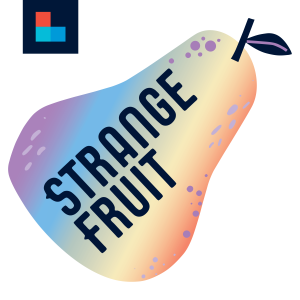
Strange Fruit #99: How Cabbage Patch Settlement House Helps Louisville's At-Risk Kids
 2014-12-28
2014-12-28
Download
Right click and do "save link as"
The Cabbage Patch Settlement House provides all kinds of programming for at-risk kids in Louisville—tutoring, clubs, sports, music, college preps and scholarships, and even emotional counseling. And a recent grant from the Humana Foundation means they'll be opening their doors on Saturdays, too.
We wanted to learn more about the Patch and what they do, so this week we talked to Executive Director Tracy Holladay, and Educational Opportunities Specialist Kanisha Ford, about the history of the house (it was founded in 1910 by a 19-year-old woman named Louise Marshall), and the work they do.
Settlement houses were part of the settlement movement of the late 1800s and early 1900s, and were built in poor urban areas to provide daycare, healthcare and education to those who couldn't afford it. Many of these folks were immigrants who needed help "settling" and succeeding in their new homes, and assistance from the government was scarce. Immigrants also played a role in the Cabbage Patch getting its name; according to the Patch, the neighborhood they started in was nicknamed the Cabbage Patch because it was populated largely with immigrants who grew cabbages in back yard vegetable gardens.
In our Juicy Fruit segment this week, two guest co-hosts, Louisville activists Darryl Young, Jr., and Sarah Zarantollo, weigh in on the cancellation of VH1's Sorority Sisters, and the LAPD spoof song about the killing of Michael Brown, leaked to TMZ earlier this week.
(Photos courtesy of cabbagepatch.org)
view more
More Episodes
012345678910111213141516171819
Create your
podcast in
minutes
- Full-featured podcast site
- Unlimited storage and bandwidth
- Comprehensive podcast stats
- Distribute to Apple Podcasts, Spotify, and more
- Make money with your podcast
It is Free
- Privacy Policy
- Cookie Policy
- Terms of Use
- Consent Preferences
- Copyright © 2015-2024 Podbean.com





